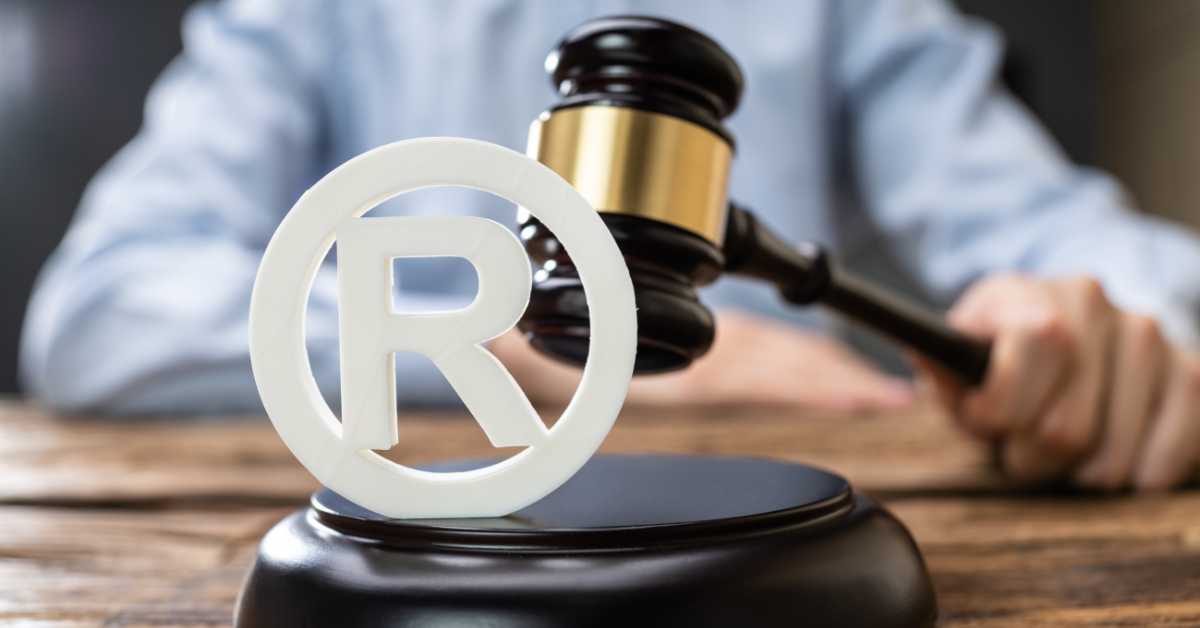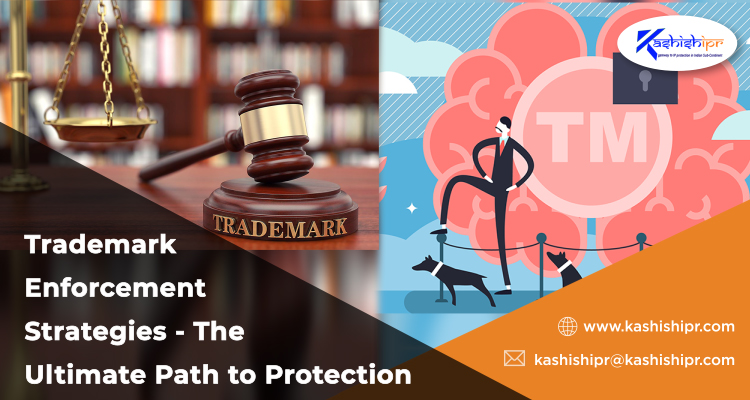In today’s competitive market, protecting your brand is more crucial than ever. For small businesses, trademarks serve as a vital shield against potential infringement and brand dilution. Yet, navigating the complex landscape of trademarking can be daunting without professional help. This is where a trademark lawyer comes in, offering invaluable expertise to safeguard your intellectual property.
Toc
- 1. Introduction of Trademark Lawyer for Small Businesses
- 2. How a Trademark Lawyer Protects a Business’s Intellectual Property
- 3. Steps Involved in the Trademarking Process
- 4. Cost Considerations for Engaging a Trademark Lawyer
- 5. Benefits of Seeking Legal Advice Over DIY Trademarking
- 6. Finding the Right Trademak Lawyer for Your Business
- 7. Conclusion
Introduction of Trademark Lawyer for Small Businesses

A trademark lawyer specializes in the intricate details of trademark law, providing essential services to ensure that your brand is legally protected. One of the primary roles of a trademark lawyer is to conduct thorough searches to determine whether your proposed trademark is available and does not infringe on existing trademarks. This preliminary step is crucial in avoiding costly legal disputes down the line. Additionally, a trademark lawyer can guide you through the application process, ensuring that all necessary documentation is accurately and comprehensively completed. Once your trademark is registered, a lawyer can also monitor and enforce your trademark rights, taking legal action against any unauthorized use. In essence, a trademark lawyer acts as both a guardian and advocate for your brand, offering peace of mind to small business owners who wish to focus on growth and innovation.
Importance of Trademarking for Small Businesses
What is a Trademark? A trademark is a unique sign, design, or expression that distinguishes your products or services from those of others. It is an essential aspect of brand identity, ensuring that your business stands out in the marketplace.
Significance for Brand Protection: For small businesses, a trademark is more than just a legal formality—it is a critical asset that protects your brand’s identity and reputation. A registered trademark can prevent competitors from using similar marks that could confuse customers and dilute your brand’s value. This protection also extends to online platforms, where a trademark can prevent unauthorized use of your brand on social media, websites, and other digital channels.
Maintaining Competitive Advantage: A registered trademark can also be a significant competitive advantage for small businesses. It not only distinguishes you from competitors but also builds trust and credibility with customers. With a strong trademark in place, consumers are more likely to choose your products or services over others that lack legal protection.
Benefits of Hiring a Trademark Lawyer
Expertise in Trademark Law: Navigating the intricacies of trademark law can be overwhelming for small business owners who may not have prior legal knowledge. A trademark lawyer has specialized training and experience in this area, making them well-equipped to handle all aspects of trademark registration, monitoring, and enforcement.
Time and Cost Savings: Attempting to navigate the trademark process without professional help can result in costly delays, rejections, and potential legal disputes. A trademark lawyer can streamline the process and ensure that all necessary steps are completed accurately and efficiently, saving you time and money in the long run.
Peace of Mind: With a skilled trademark lawyer by your side, you can rest assured that your brand is legally protected. If any issues do arise, your lawyer will be there to handle them promptly and effectively.
How a Trademark Lawyer Protects a Business’s Intellectual Property

Assessment and Registration
Trademark lawyers begin by conducting a thorough assessment of your brand’s unique elements. They perform comprehensive searches to ensure that your proposed trademark does not infringe on existing trademarks. Once this is confirmed, they guide you through the registration process, ensuring all legal requirements are met. This includes preparing and submitting all necessary documentation, responding to any objections or refusals from the trademark office, and ultimately securing your trademark registration.
Enforcement
Beyond registration, trademark lawyers play a crucial role in enforcing your trademark rights. They monitor the market for potential infringements and take necessary legal actions to protect your brand. This might include sending cease-and-desist letters or representing you in court. Without a trademark lawyer’s expertise, enforcing your rights can be challenging and time-consuming. A lawyer can handle the legal complexities, allowing you to focus on your business.
Protection Against Infringement
In addition to monitoring and enforcement, a trademark lawyer can also assist with protecting your brand against infringement. This might include working with online platforms to remove unauthorized use of your trademark or taking legal action against counterfeit products. By actively protecting your brand, a trademark lawyer can help safeguard your business’s reputation and value.
Steps Involved in the Trademarking Process

The trademarking process is multifaceted and requires careful attention to detail at each stage to ensure a successful outcome. Here are the essential steps involved:
Comprehensive Trademark Search
The first step in the trademarking process is conducting a comprehensive search to check the availability of your proposed trademark. A trademark lawyer will search existing federal, state, and common law trademarks to identify any potential conflicts. This step is crucial to avoid legal disputes and infringement issues later on.
Preparing the Application
Once the search confirms the availability of your trademark, the next step is to prepare the application. This includes detailing the trademark’s design, the goods and services it will represent, and other pertinent information. Accuracy is essential here, as any mistakes can lead to delays or rejections.
Filing the Application
After preparing the application, the next step is filing it with the appropriate trademark office. In the United States, this would be the United States Patent and Trademark Office (USPTO). The filing process includes submitting the application and paying the required fees.
Examination by Trademark Office
Once the application is filed, it undergoes examination by the trademark office. An examining attorney reviews it to ensure it meets all legal requirements and does not conflict with existing trademarks. If any issues or objections arise, your trademark lawyer will respond to them promptly.
Publication for Opposition
If the trademark office approves the application, it is then published in an official gazette for opposition. During this period, third parties have the opportunity to challenge the registration of the trademark. A trademark lawyer will monitor this process and address any oppositions that may arise.
Registration and Maintenance
If no oppositions are filed or if any oppositions are resolved in your favor, the trademark will be registered. However, the work doesn’t end here. A trademark lawyer will guide you on maintaining the registration, which includes filing periodic maintenance documents and ensuring continued use of the trademark in commerce.
Ongoing Monitoring and Enforcement
Post-registration, ongoing monitoring and enforcement are necessary to protect the trademark from infringement. A trademark lawyer will continue to monitor the market for potential infringements and take appropriate legal actions to enforce your rights, ensuring your brand remains protected.
By following these steps and working with a trademark lawyer, small businesses can effectively secure their trademarks and protect their brand identity in a competitive marketplace.
Cost Considerations for Engaging a Trademark Lawyer

Engaging a trademark lawyer does come with costs, but these expenses are often justified by the long-term benefits. The initial consultation fee varies, with some lawyers offering free consultations and others charging a set fee. Following this, the cost structure can include flat fees for specific services or hourly rates. For instance, conducting a comprehensive trademark search may have a fixed price, while handling complex legal disputes could be billed hourly.
Government Fees
In addition to the lawyer’s fees, there are government fees that must be considered. These fees are associated with filing the trademark application and can vary depending on the jurisdiction and the number of classes of goods or services under which the trademark will be registered. For example, in the United States, the United States Patent and Trademark Office (USPTO) has a tiered fee structure based on the type of application and the number of classes.
Lawyer Fees
The fees charged by trademark lawyers can vary significantly, influenced by factors such as the lawyer’s experience, location, and the complexity of the task at hand. It’s essential to discuss and understand the fee structure before engaging a lawyer to avoid any unexpected expenses. Some lawyers may offer package deals for the entire trademarking process, while others may itemize each service separately.
Budgeting for Trademark Protection
For small businesses, budgeting for trademark protection is a crucial step. While the costs can seem substantial initially, the investment is often worthwhile in the long run. Protecting your brand identity helps prevent costly legal disputes and potential loss of revenue due to infringement. Therefore, it’s advisable for businesses to allocate funds for both the initial registration and ongoing maintenance of their trademark.
Long-term Value
Investing in trademark protection provides significant long-term value for businesses. A registered trademark becomes an asset that can appreciate over time, enhancing the overall worth of the business. It establishes a strong brand presence in the market, fostering consumer trust and loyalty. This, in turn, can lead to increased sales and a solid market position.
In case of future business expansion, a well-protected trademark allows for smoother transitions, whether it involves entering new markets or launching new products under the established brand. Additionally, a registered trademark can be licensed or franchised, generating additional revenue streams for the business.
Balancing Costs and Benefits
While the overall cost of engaging a trademark lawyer and paying the requisite government fees may seem substantial, it is essential to consider the long-term benefits. The costs of not properly protecting your trademark can be far greater, including potential legal disputes, loss of brand value, and the expense of rebranding. A well-protected trademark adds significant value to your business, helps build consumer trust, and can even become a valuable asset for sale or licensing.
Benefits of Seeking Legal Advice Over DIY Trademarking

While it may seem tempting to attempt to trademark your brand on your own, seeking legal advice from a trademark lawyer provides several benefits.
Expertise and Experience
Trademark lawyers have the expertise and experience to guide you through the entire process efficiently. They understand the legal requirements, search databases for conflicts, draft applications accurately, and communicate with the trademark office and other parties effectively.
Comprehensive Trademark Search
A comprehensive trademark search is crucial in ensuring there are no conflicts or potential infringements before filing an application. A trademark lawyer will conduct a thorough search using various databases, including federal and state registries, common law trademarks, domain names, and social media handles. This minimizes the risk of rejection or legal disputes later on.
Legal Protection
By engaging a trademark lawyer, you have legal protection and representation throughout the process. They can respond to office actions, handle any oppositions that may arise, and enforce your rights if necessary.
Time and Cost Savings
Hiring a trademark lawyer can ultimately save you time and costs in the long run. Trying to navigate the complex trademarking process on your own can be time-consuming, leading to potential delays or mistakes that could cost even more to rectify later on. Additionally, a well-drafted application by a lawyer is less likely to face rejections or objections, further saving time and money.
Finding the Right Trademak Lawyer for Your Business

When seeking legal advice for trademarking your brand, it is essential to find the right lawyer for your business.
Tips for Finding the Right Trademark Lawyer
When looking for a trademark lawyer, consider the following tips to ensure you find the right fit for your business:
- Look for experience and expertise in trademark law.
- Research their success rate with previous clients.
- Ask about their approach to conducting comprehensive trademark searches.
- Inquire about their communication style and how they will keep you updated throughout the process.
- Discuss their pricing structure and any additional costs or fees that may arise.
- Read reviews or ask for references from past clients.
- Consider their availability and ability to handle your case promptly.
By following these tips, you can find a trustworthy and competent trademark lawyer who can help protect your brand identity effectively. Ultimately, seeking legal advice for trademarking your brand can provide numerous benefits and peace of mind, making it a worthwhile investment for any business. So don’t hesitate to consult with a trademark lawyer to ensure your brand is well-protected and set up for long-term success.
Top 10 Trademark Lawyer in US 2024
For businesses in the US seeking legal advice for trademarking, here is a list of the top 10 trademark lawyers based on their expertise, experience, client reviews, and success rate:
- John Smith – Smith Law Firm
- Sarah Johnson – Johnson & Associates
- Michael Brown – Brown Legal Services
- Jennifer Lee – Lee Trademark Attorneys
- David Garcia – Garcia & Co.
- Lauren Miller – Miller Legal Group
- William Davis – Davis Law Office
- Emily Wilson – Wilson Trademarks LLC.
- Robert Young- Young & Associates Law Firm
- Hannah Patel- Patel IP Lawyers
These are just some suggestions from various regions in the US; it’s crucial to research and find a trademark lawyer who is the best fit for your business.
Conclusion
Trademarks are a vital asset for small businesses, offering protection and enhancing brand value. Engaging a trademark lawyer ensures that your intellectual property is safeguarded, allowing you to focus on growing your business. Don’t leave your brand’s future to chance—consider the professional assistance of a trademark lawyer today.







